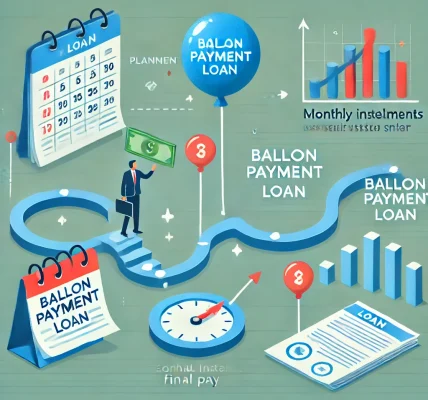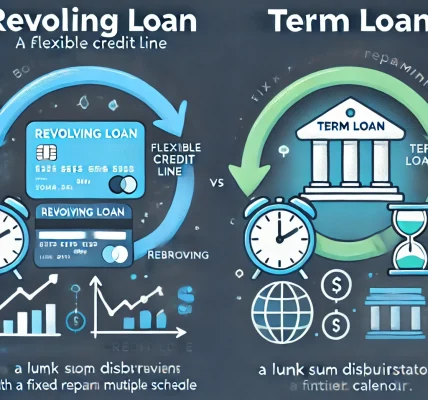Introduction
A credit score is one of the most critical factors that determine a borrower’s ability to secure a loan. Financial institutions and lenders rely on credit scores to assess an applicant’s creditworthiness, impacting loan approval rates, interest rates, and borrowing terms. Understanding how credit scores influence loan policies can help borrowers take strategic steps to improve their chances of securing favorable loan conditions.
In this comprehensive guide, we will explore the role of credit scores in loan policies, how they affect approval rates, and strategies to maintain a healthy credit score.
What is a Credit Score?
A credit score is a numerical representation of a borrower’s creditworthiness, based on their credit history. It is calculated by credit bureaus using various factors such as payment history, outstanding debt, credit utilization, and length of credit history. The most commonly used credit scoring models include:
- FICO Score (Fair Isaac Corporation) – Ranges from 300 to 850
- VantageScore – Also ranges from 300 to 850
Credit Score Ranges:
| Credit Score Range | Rating | Loan Approval Likelihood |
|---|---|---|
| 800 – 850 | Excellent | Very high approval chance with low interest rates |
| 740 – 799 | Very Good | High approval chance with favorable interest rates |
| 670 – 739 | Good | Moderate approval chance with average interest rates |
| 580 – 669 | Fair | Low approval chance with higher interest rates |
| 300 – 579 | Poor | Very low approval chance or rejection |
How Credit Scores Impact Loan Policies
1. Loan Eligibility
Lenders set minimum credit score requirements for different types of loans. A higher credit score increases the chances of loan approval, while a lower score may lead to rejection or the need for a co-signer.
Example:
- A personal loan may require a minimum credit score of 650.
- A mortgage loan may require a score of at least 620 for conventional loans and 580 for FHA loans.
2. Interest Rates
Borrowers with higher credit scores qualify for lower interest rates, while those with lower scores may face higher interest rates due to the increased risk for lenders.
| Credit Score | Estimated Personal Loan Interest Rate |
| 750+ | 5% – 10% |
| 700 – 749 | 10% – 15% |
| 650 – 699 | 15% – 20% |
| 600 – 649 | 20% – 30% |
| Below 600 | May not qualify or face very high rates |
3. Loan Amount & Terms
Lenders determine loan limits and repayment terms based on a borrower’s credit score. Higher scores allow borrowers to qualify for larger loan amounts with flexible repayment terms, while lower scores may limit borrowing capacity.
Example:
- A borrower with a 750 credit score might qualify for a $50,000 personal loan with a 7-year repayment term.
- A borrower with a 600 credit score may only qualify for $10,000 with a 3-year repayment term.
4. Down Payment Requirements
For secured loans like mortgages and auto loans, a lower credit score may require a higher down payment to compensate for the lender’s risk.
- High credit score (750+): 10% down payment may be sufficient.
- Low credit score (600-649): 20%-30% down payment may be required.
5. Approval Speed
Lenders may process applications faster for individuals with strong credit scores, as they pose less risk. Borrowers with low scores may undergo additional scrutiny, requiring extra documentation and guarantors.
How to Improve Your Credit Score for Better Loan Terms
1. Make Timely Payments
Payment history accounts for 35% of your credit score. Missing payments can drastically reduce your score and lower loan approval chances.
- Set up automatic payments to avoid missed due dates.
- Prioritize paying credit card bills and loan EMIs on time.
2. Reduce Credit Utilization
Credit utilization refers to how much credit you are using compared to your total credit limit. Lenders prefer borrowers who use less than 30% of their available credit.
- Example: If you have a $10,000 credit limit, keep your balance below $3,000.
- Pay down high credit card balances to improve your score.
3. Maintain a Mix of Credit
Having a healthy mix of credit types (credit cards, mortgages, auto loans, and personal loans) positively impacts your score.
- Avoid opening multiple new credit accounts at once, as it can lower your score temporarily.
4. Monitor Your Credit Report
Errors in your credit report can impact your score unfairly. Regularly check your credit report and dispute any inaccuracies with the credit bureau.
5. Avoid Frequent Hard Inquiries
Every time you apply for a loan or credit card, a hard inquiry is recorded, slightly reducing your score. Multiple hard inquiries in a short period can signal financial distress to lenders.
- Space out credit applications to minimize negative effects.
Credit Score Myths vs. Facts
| Myth | Fact |
| Checking your credit report lowers your score | Checking your own score is a soft inquiry and does not impact it |
| Closing old credit accounts improves your score | Closing accounts can reduce credit history length, negatively affecting your score |
| Paying off debt instantly boosts your score | While it helps, credit improvement takes consistent effort over time |
| You need to have debt to build credit | Using a credit card responsibly and paying on time is enough to build credit |
Legal and Regulatory Considerations
Governments and regulatory bodies have laws in place to ensure fair credit reporting and lending practices.
1. Fair Credit Reporting Act (FCRA)
- Ensures the accuracy, fairness, and privacy of credit reports.
- Allows consumers to dispute incorrect information.
2. Equal Credit Opportunity Act (ECOA)
- Prohibits lenders from discriminating against borrowers based on race, gender, or marital status.
3. Truth in Lending Act (TILA)
- Requires lenders to disclose loan terms, interest rates, and fees clearly to borrowers.
Conclusion
Credit scores play a crucial role in loan policies, affecting eligibility, interest rates, loan amounts, and repayment terms. Borrowers with high credit scores enjoy lower borrowing costs and better approval chances, while those with lower scores face stricter lending conditions.
By maintaining a strong credit profile through responsible financial habits, borrowers can improve their creditworthiness and secure better loan options. Understanding how credit scores impact loan policies empowers individuals to make informed financial decisions and access credit on favorable terms.
Key Takeaways:
- Higher credit scores lead to better loan approval rates and lower interest rates.
- Responsible credit management, such as timely payments and low credit utilization, improves scores.
- Borrowers should regularly monitor their credit reports and dispute inaccuracies.
- Government regulations protect borrowers from unfair lending practices.


